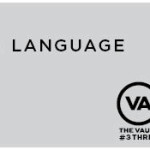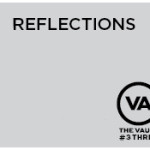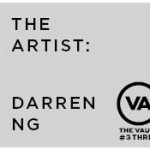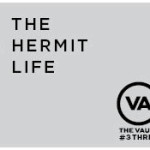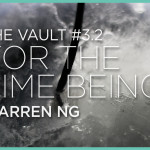One of the big concepts Invisibility tackles is existence. Questions about the nature of existence fall under a branch of science known as ontology.
Scene 1 opens with the characters B, C and D debating the nature of A’s existence. A’s name is just ‘A’ – he does not have a ‘proper’ name, which puzzles the characters. He also does not have a job.
But A still exists – there has to be something else to A’s existence other than a name and a job.
Excerpt from Invisibility (page 10):
C: Then how is [A] going to act the role? No name and no background.
D: Just act A lor!
At the heart of A’s existence is some form of ‘A-ness’ which makes A, ‘A’. In the play, A’s ‘A-ness’ is defined by his pursuit of invisibility. And therein lies one of the big questions Invisibility asks: If you’re invisible, do you exist?
If your answer is no…
…then your existence is based on other people’s perception of you. You exist because others acknowledge your being.
In this frame of mind, it becomes important how people see us. Think of the clothes you choose to wear – what sort of image are you projecting to others? What are you without your clothes? (Other than naked, of course.)
Excerpt from Invisibility (page 26):
A takes off his top.
D: Eh, really, I can’t see your top now! (to audience) Right? Can’t see right? (to A) Take off your pants!
A: Okay! (A does so)
D: Woa! Can only see your underwear! ARMANI somemore! Take off your underwear, then you’ll be totally invisible!
Excerpt from Invisibility (page 32):
D: A enjoys even more the feel of having his hair washed. It’s a soothing sensation. When the barber massages his scalp, he can feel the tensions in his body ease away. The feeling of being touched – it feels good.
People can also touch you. Hear you. Smell you. Maybe even taste you (!). Your existence is based on how others sense you.
But can senses be trusted?
- Have your eyes ever been fooled? Here’s a list of 25 optical illusions.
- Think what you hear in the movies sounds the same in real life? Watch some foley (sound effect) artists at work.
- Smell something that was really something else? In the perfume industry, a bean can smell like hay.
- Here’s how to trick your sense of touch.
- Synthetic food flavourings can make you taste like you’re eating the real thing. Think you’re tasting strawberries?
And if senses are not completely reliable, how can we be absolutely sure of our existence? Read on…
If your answer is yes…
…you think that you exist, and even if no one else does, you still know that you do.
In this frame of mind, your existence is defined by your thoughts, independent of what anyone else perceives of you.
Excerpt from Invisibility (page 64):
A: Whenever I’m alone I’d be thinking, and since I’m alone a lot I think a lot.
The concept of a thinking existence was theorised by 17th-century philosopher Renee Descartes. It is encapsulated in his famous statement cogito ergo sum: I think therefore I am. To Descartes, doubting your existence is actually proof that you exist because you thought it.
A person’s thoughts thus become the defining characteristic of one’s existence, independent of sensory perception. In this way, you can be invisible, but still exist.
No character embodies the concept of an invisible existence better than the invisible Hermit Master whom A aspires to.
Excerpt from Invisibility (page 60):
A: At that point [the Hermit Master] thought of a particular friend. So off he went in a boat, to visit him. But when he arrived at his friend’s place, he didn’t go in. Instead he turned his boat around and went home. When asked why, he said: “When I felt like going I went, and having arrived, my wish was fulfilled. Is it necessary for me to see him?
The Hermit Master exists because he thinks – that is all. There is no need for him to be seen or heard by others.
Excerpt from Invisibility (page 46):
Master: (in old Chinese) Irreconcilable, this world and I. Speak I what more? And what for?
How do you know you exist? What clues do you rely on to inform you of your existence?
By Daniel Teo
Published on 16 July 2015


